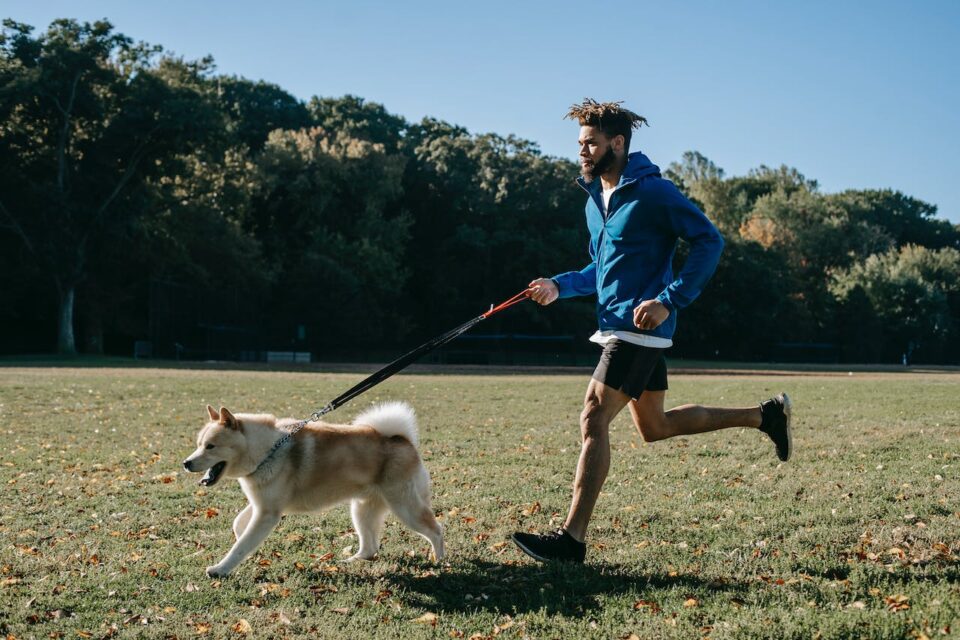How to Tell If Your Dog is Overweight
Picture your furry companion wagging its tail, eyes bright but with a little extra weight around its middle. Obesity in dogs is a growing concern. It’s not just about appearance; it’s about health. Knowing whether your dog is overweight is essential for their well-being.
Carrying extra pounds can lead to various health issues in dogs. Recognizing and addressing weight problems is crucial for your pet’s longevity and quality of life. But how can you tell if your dog is indeed overweight?
We will explore the signs that indicate a dog might be carrying excess weight. Look for indicators like a lack of waistline or difficulty feeling their ribs. These signs can be subtle, so an informed approach is vital.
Understanding “how to tell if your dog is overweight” involves visual checks and physical examinations. Keep reading to learn how to assess your dog’s weight and take steps for a healthier lifestyle.
Understanding Healthy Weight in Dogs
What does a healthy weight look like for your dog? It’s not just about the numbers on a scale. Each dog breed’s ideal weight range is influenced by age and size. Understanding these differences is vital. Maintaining a healthy weight is essential for your dog’s well-being, as being overweight or obese can lead to various health risks.
Visual Inspection for Weight Assessment
A quick visual check can tell you a lot. Observe your dog from above and from the side. A healthy dog usually has a noticeable waist and a tuck in the abdomen. If your dog appears more like a sausage with a distended or sagging belly, it might be a sign they are overweight. Comparing your dog’s shape to images of healthy-weight dogs of the same breed can also be helpful.
Concerned about your dog’s weight? Discover the best ways to keep them healthy and fit. Shop with us at Gou Gou Pets Products for quality pet care essentials.
Physical Examination to Determine Weight Status
Let’s get hands-on with your dog’s health. You can perform a simple physical exam at home. Start by feeling for the ribcage. It might be a concern if you can’t easily feel the ribs due to excess fat. A lack of a defined waistline is another red flag. Look for palpable fat deposits on the back and hips. Also, take note of any signs of reduced muscle mass or tone, as these can also indicate weight issues.
Monitoring Your Dog’s Activity Levels
Activity levels can tell you a lot about your dog’s weight. A decreased activity or a reluctance to exercise can show your dog is carrying extra weight. Observe how weight affects their playfulness and mobility. Changes in endurance and breathing during activities can be significant indicators. Remember, regular exercise is crucial for maintaining a healthy weight in dogs.
Related: Identifying If Your Dog Has Joint Pain
Dietary Considerations and Weight

Diet plays a crucial role in managing your dog’s weight. Overfeeding or an improper diet can easily lead to weight gain. Understanding your dog’s caloric needs is essential. High-quality dog food and proper portion sizes are key. Be mindful of treats and human food, as these can quickly increase calorie intake and contribute to weight issues.
Health Risks Associated with Overweight Dogs
Overweight dogs are at a higher risk of several health issues. Common problems include chronic diseases such as diabetes, arthritis, and heart conditions. These ailments not only impact their daily life but also their overall well-being. Excess weight can exacerbate joint and mobility issues, limiting their ability to move and play comfortably.
The impact of obesity on a dog’s lifespan is significant. Carrying extra weight can considerably shorten a dog’s life. Therefore, it’s essential to seek veterinary guidance for weight-related health concerns. Regular vet check-ups and tailored advice on diet and exercise can help manage your dog’s weight effectively, ensuring their long-term health and happiness.
Related: Dog Suffer From Arthritis? Check Out These Natural Remedies.
The Role of Regular Veterinary Check-Ups
Routine vet visits are essential in keeping your dog’s weight in check. Vets use professional tools and methods to assess your dog’s weight accurately. They can offer valuable advice on diet and exercise tailored to your dog’s needs. Early detection of weight issues is crucial, and your vet can help intervene promptly. Working together, you can create a comprehensive weight management plan to ensure your dog’s optimal health.
Creating a Weight Loss Plan for Your Dog
Developing an effective weight loss strategy is vital. This involves a controlled diet and regular exercise. Setting realistic goals and monitoring your dog’s progress is essential. Remember to tailor the plan to suit your dog’s specific health needs. Consistency and patience are vital in helping your dog achieve and maintain a healthy weight.
Related: Safe And Effective Natural Anti-Inflammatory Remedies For Your Dog
Supporting Your Dog’s Journey to a Healthy Weight
Your support is crucial during your dog’s weight loss journey. Keep them motivated with emotional and physical support. Engage them in fun exercise activities and use positive reinforcement. Tracking progress and celebrating milestones can be encouraging. Even after achieving the weight loss goal, maintaining a healthy lifestyle is important for lasting results.
Keep your furry friend in top shape! Find out if they’re overweight and get the right products for their health. Shop with us today at Gou Gou Pets Products for all your dog’s wellness needs.
Prioritizing Your Dog’s Health with Proper Weight Management

Recognizing if your dog is overweight is a crucial aspect of pet care. The journey begins with understanding the signs of excess weight. These include difficulty feeling the ribs, lack of a visible waistline, and a sagging abdomen.
Maintaining a healthy weight is vital for your dog’s overall well-being. It’s about more than physical appearance; it’s about their health and happiness. Overweight dogs face numerous health risks, from joint problems to heart conditions. By monitoring your dog’s weight, you’re taking a significant step in prolonging their life and enhancing their quality of life.
Consistent care and attention to your dog’s weight are essential. Regular check-ups with the vet, a balanced diet, and adequate exercise are all part of a comprehensive weight management plan. Your commitment to these practices reflects your love and dedication to your furry friend.
For further guidance on dog health and wellness, visit Gou Gou Pets. They offer valuable resources and advice for keeping your dog in top shape. Ensuring a healthy weight for your dog is a commitment to their happiness and health. It’s essential to your loving care, helping secure a joyful and active life for your beloved pet.
~Veterinarian Recommended